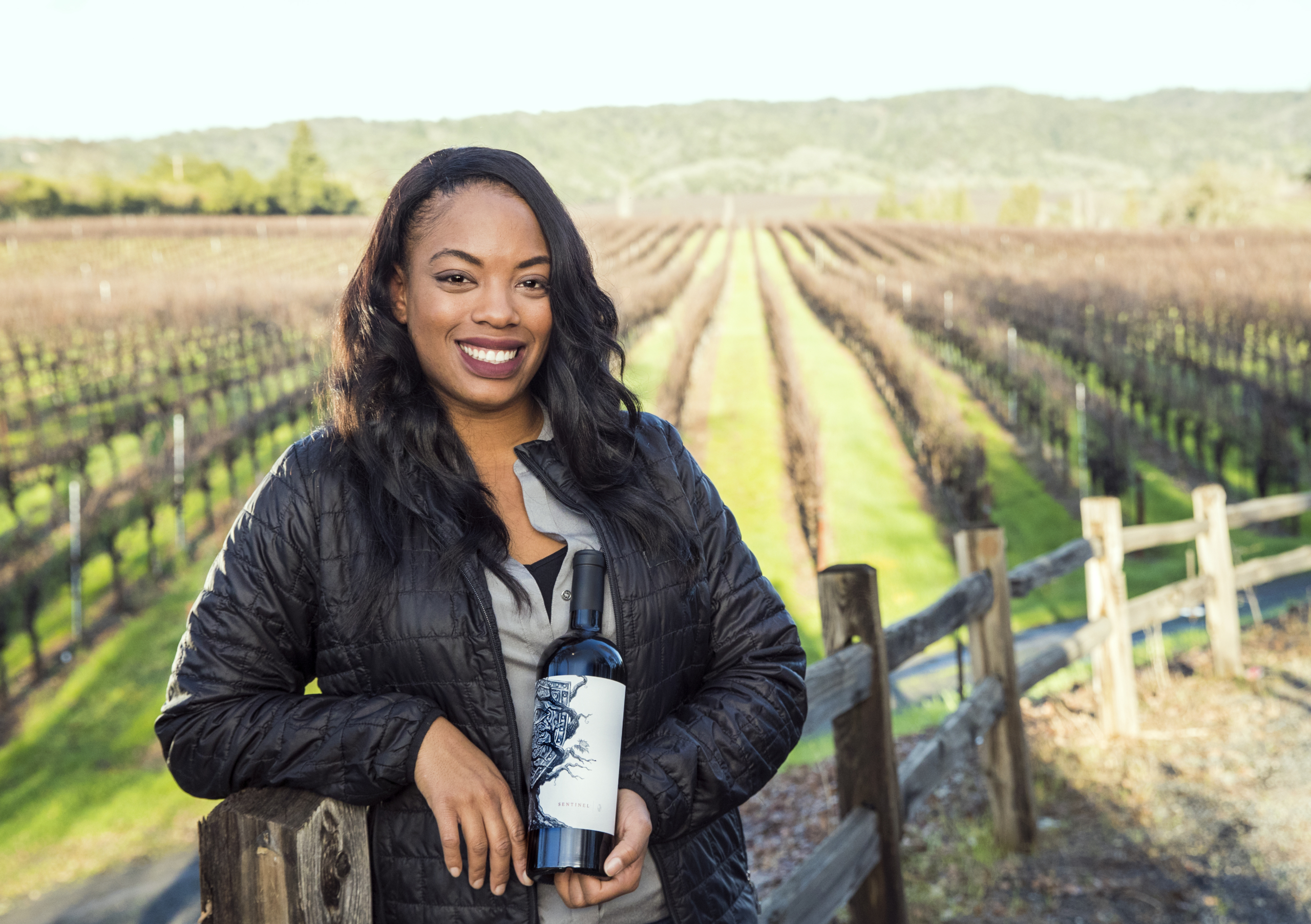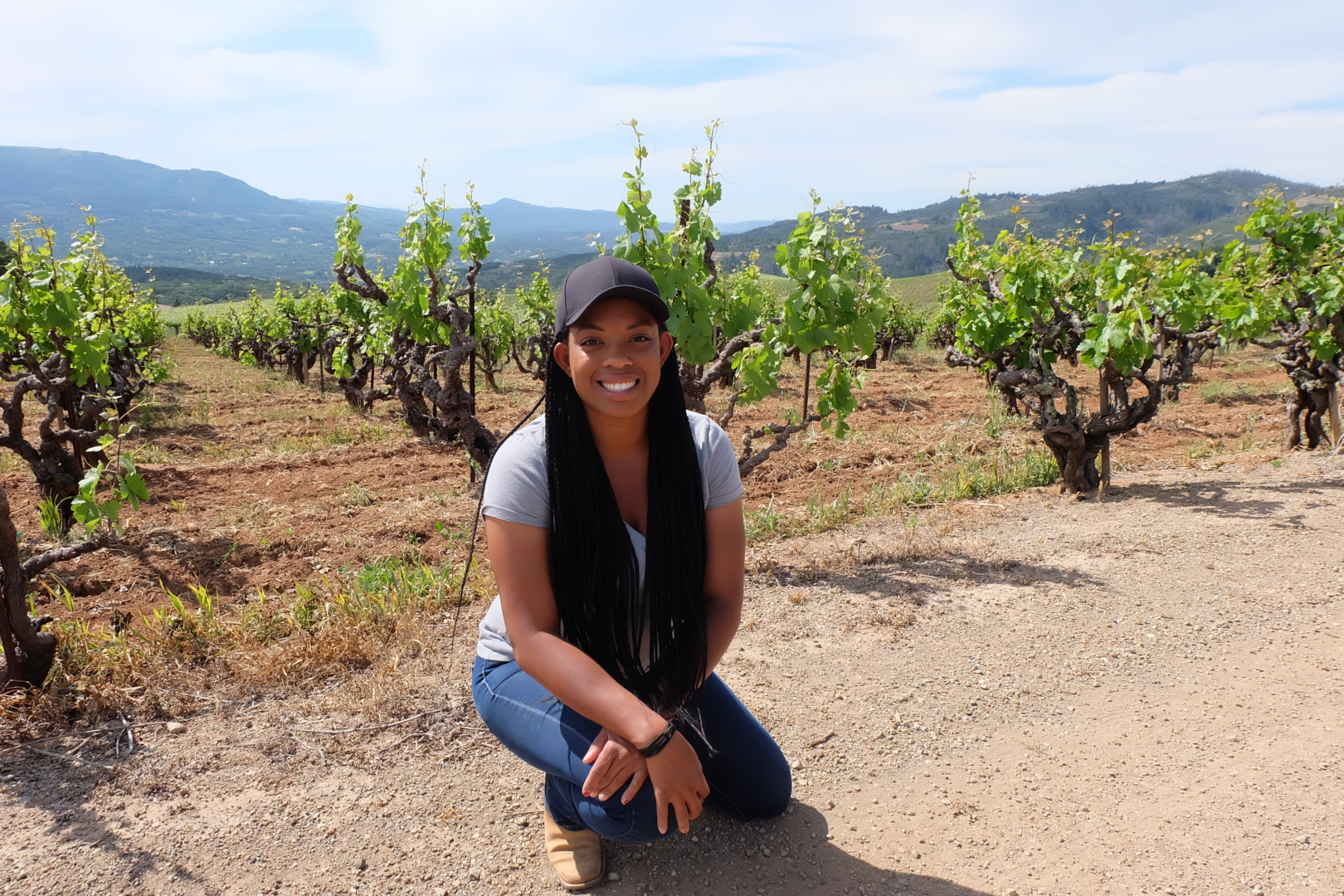Vineyard Manager Grows Her Own Way

Brenae Royal is used to standing out.
As a young girl, she was the only one of her siblings who enjoyed toiling after the tomatoes and flowers in her grandmother’s garden. As she grew older, she broke the family mold of careers in medicine and education to enroll in the College of Agriculture at Chico State.
And when she applied for her first winery job with E&J Gallo, she didn’t have the traditional oenology degree, but Royal (Agriculture, ’13) was confident she would excel due to the knowledge, flexibility, and curiosity she developed studying crops, horticulture, and land resource management.
For the last seven years, her roles at the 134-year-old vineyard Monte Rosso have ranged from recruiting and overseeing interns to working on grapes and grower relations, as well as guiding the growth and maturity of the grapes from dormancy until harvest.
“Wine is created in the vineyard. Everything we do is going to craft the wine in a major way, and that’s why I love working with it,” said Royal, currently Monte Rosso’s vineyard manager. “I have a ton of pride in what we are doing—how much wood we leave on the vine or how we thin the crop load or how we remove the leaves for air and light. You can taste our decisions in the glass.”
As the vines transform from green to gold and scarlet, she is enjoying a small respite in workload after the harried schedule of harvest. Even though her role is largely about the vineyard, Royal’s days can be filled with finding parts for machinery or accepting deliveries, serving as the listening ear or acting as disciplinarian. She lives on-site at Monte Rosso and guides its budget, leads tours, and hosts team lunches to boost morale, putting in hours that can start before sunrise and last long into the day.
“As vineyard manager, you are the spine or the skeleton,” she said. “You are the core of what’s happening because you are directing everything, but you are also the least important person. You are all things vineyard but you are just one person.”
There’s a lot Royal cannot control, the weather and natural disasters among them. From hotter-than-usual summers to threatening wildfires and smoke damage to the grapes themselves, her education and evolution are ongoing, she said.
“There’s a lot of unpredictability in being a farmer, and as you get better, each vintage presents a new opportunity,” she said. “I always think back to my first year in 2015. I cried every single day. It was all such a new lesson. Here I am in 2020, and I see some of those challenges, and it’s like, ‘OK we have been here before.’ I’m more confident in my skillset and team and the decisions I’m making.”
This year, overseeing the largest vintage and fastest-picked harvest of her tenure, she is proud that she continues to thrive even with a different background from the majority who hold her role or work in winemaking.
“Excelling in an industry that I didn’t have my feet originally planted in shows the versatility of my education,” she said. “Chico is an anomaly. Students there are always resilient, always willing to learn, and hard workers. I know I will forever be giving back in any capacity that I can because it had such a profound effect on who I am today and the success that I have achieved.”

Royal hopes she can use her crops and horticulture knowledge to drive a change in the vineyard’s longstanding operations, by reducing herbicides, returning to dry farming, and restoring the soils.
“Sustainability is not just important to the wine industry. It’s important to ag, period,” she said. “Going into the next decade of farming, we need to be smart about what we are doing. Maintaining vineyard health and wine quality all starts in the earth.”
As she pushes for Monte Rosso’s return to more sustainable farming practices and explores how the winery can be resilient in the face of wildfires and drought, Royal is also speaking about equality and diversification within her field. Royal is involved in discussions on diverse representation and recruiting—a journey she understands well as a Black, millennial woman within the historically white and male-dominated wine industry.
“I am advocating for all BIPOC [black, indigenous, people of color],” she said. “And diversity isn’t just your skin color. It’s your education, it’s your upbringing, it’s your socioeconomic status. I’ve been able to add value because I don’t look like a lot of people here. We can say something that hasn’t been heard before.”
When she has the chance to have those conversations, whether due to racism, microaggressions, or simple curiosity, she embraces the opportunity to share more about who she is, what she believes, and her contributions to the field.
“It’s great that I can be a pioneer and a face for leaders to see and inspire people,” she said. “But, at the end of the day, being a young Black woman doesn’t get me through my job. It’s my dedication and the work I do day in and day out.”


